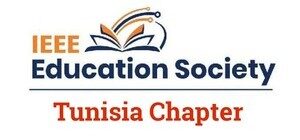DISTINGUISHED LECTURE: PRACTICAL COMPETENCES AND EDUCATION FOR ALL–IEEE EDUCATION SOCIETY
On Jul, 07th 2022
Speaker: Manuel Castro,
Electrical and Computer Engineering Professor in the Spanish University for Distance Education (UNED), is expert in Applications of Simulation and Electronics and in Technology Enhanced Learning. He co-chaired the conferences LWMOOCS 2018, REV 2016, FIE 2014. Is IEEE Fellow, IEEE HKN (Eta Kappa Nu) Professional member, President Emeritus of the IEEE Education Society and Past Director of the IEEE Division VI. He has been awarded among others with: IEEE EdSoc WilliamE. Sayle Award for Achievement in Education, TAEE Tomás Pollán to Discipline Merit, and IGIP Nicola Tesla Chain. Is Honour Ambassador of Madrid Convention Bureau and co-editor of IEEE-RITA.
Email: [email protected]
This presentation will show the long way we were involved during more than thirty years around distance education and practical competences, the convergence with online learning in the use of Technology Enhanced Learning (TEL) Engineering and the new way that we are facing after the main effects of the pandemic time where we should go a new era, more inclusive, diverse and personalized adapted for all. The way we include the practical competences inside the engineering studies, problems, simulations, remote and pocket labs open a new era in those applications and the incoming immersive environments.
We will finish the presentation with an introduction of the IEEE Education Society inside the area of educational activities, collaboration events and local chapters orientation.

